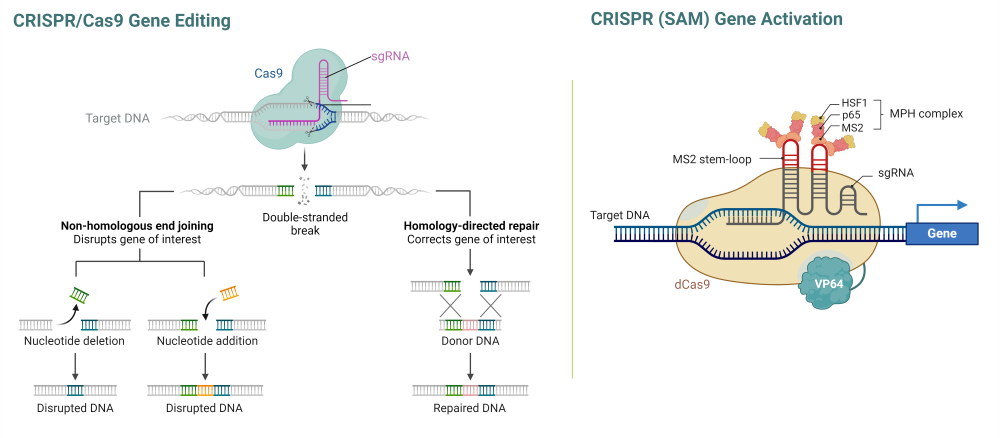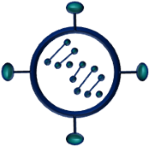CRISPR-Cas9
CRISPR-Cas9 is a revolutionary gene-editing technology enabling precise and targeted modifications of cellular DNA.
Bacteria capture and store DNA fragments from invading viruses within a region of their genome, and these CRISPR (Clustered Regularly Interspaced Short Palindromic Repeats) guide sequences help detect and protect the bacteria from future infections. When the CRISPR guide sequences detect an invading virus or DNA whose sequence is complementary to the CRISPR guide, the Cas9 (CRISPR-associated protein 9) nuclease is recruited to specifically cleave the invading DNA, resulting in its degradation. This CRISPR-Cas9 system has been modified for use in mammalian cells. By introducing a guide sequence (sgRNA) specific for our gene of interest, we can either knock-out specific genes through introducing frame shift mutations via Non-Homologous End Joining (NHEJ) or generate knock-in mutations by additionally providing a template for Homologous Recombination (HR). CRISPR-Cas9 has a wide range of potential applications in research, medicine, and biotechnology. It is used for studying gene function, creating disease models, developing new therapies for genetic disorders, and even modify plants and animals for agriculture. A further derivation of the system, termed CRISPR Synergistic Activation Mediator (SAM), uses a non-cleaving dCas9 fused to a transcriptional activator to induce expression of target genes.

CRISPR-Cas9 Solutions Enabling Research and Discovery
Our technologies are fully covered by a license with the Broad Institute and are for research use only.
Cell Lines & Cell Pools

- Cas9-expressing cell lines and cell pools ready for sgRNA introduction to generate knockouts, including iPS cells
- CRISPR (SAM)-ready cell lines
- CRISPR Knockout cell lines
Virus-Based Tools: Lentiviruses & AAVs

- Ready-to-use Lentiviruses for target gene knockout - View Products
- SaCas9 AAVs for tissue specific transduction - View Products
- CRISPR/Cas9 Kinase Knockout Lentivirus Library
Proteins

- Multiple species of recombinant Cas proteins including Cas9, Cas12, Cas13.
- View Products


